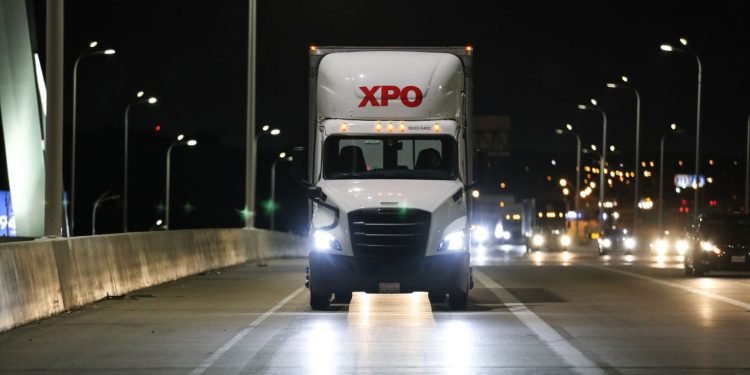End-to-end logistics provider XPO Logistics is making significant strides towards a more sustainable and secure future. The company recently announced the rollout of 160 new rigid vehicles across its Shared User network in the UK. This strategic move emphasizes XPO’s commitment to both environmental responsibility and driver and public safety.
Boosting Efficiency and Reducing Emissions:
The new vehicles boast cutting-edge engines that deliver a significant 10% improvement in fuel efficiency compared to their predecessors. This translates to a reduced carbon footprint for XPO’s operations, minimizing their environmental impact. By lowering fuel consumption, XPO is not only contributing to a cleaner future but also potentially optimizing transportation costs.
Safety First:
XPO prioritizes the safety of its drivers, crews, and the public on the roads. The new vehicles are likely to be equipped with the latest safety features, potentially including advanced driver-assistance systems (ADAS) and improved visibility measures. This investment in safety technology fosters a safer working environment for XPO’s employees and enhances overall road safety.
A Commitment to Progress:
XPO’s decision to invest in a greener and safer fleet reflects their ongoing commitment to innovation and responsible growth. By continuously evaluating and implementing new technologies, XPO demonstrates its dedication to providing the most efficient, safe, and sustainable distribution services possible for its customers.
Benefits All Around:
The rollout of these new vehicles offers a multitude of advantages:
- Reduced Environmental Impact: Lower fuel consumption translates to a smaller carbon footprint.
- Enhanced Safety: Modern safety features contribute to a safer driving experience for everyone.
- Improved Efficiency: Potentially lower fuel costs and optimized operations.
- Customer Satisfaction: XPO’s commitment to sustainability and safety aligns with the growing demands of environmentally and socially conscious customers.
XPO Logistics’ investment in its fleet exemplifies a positive trend within the logistics industry. As sustainability and safety become ever more important, companies that prioritize these aspects are likely to position themselves for future success.























